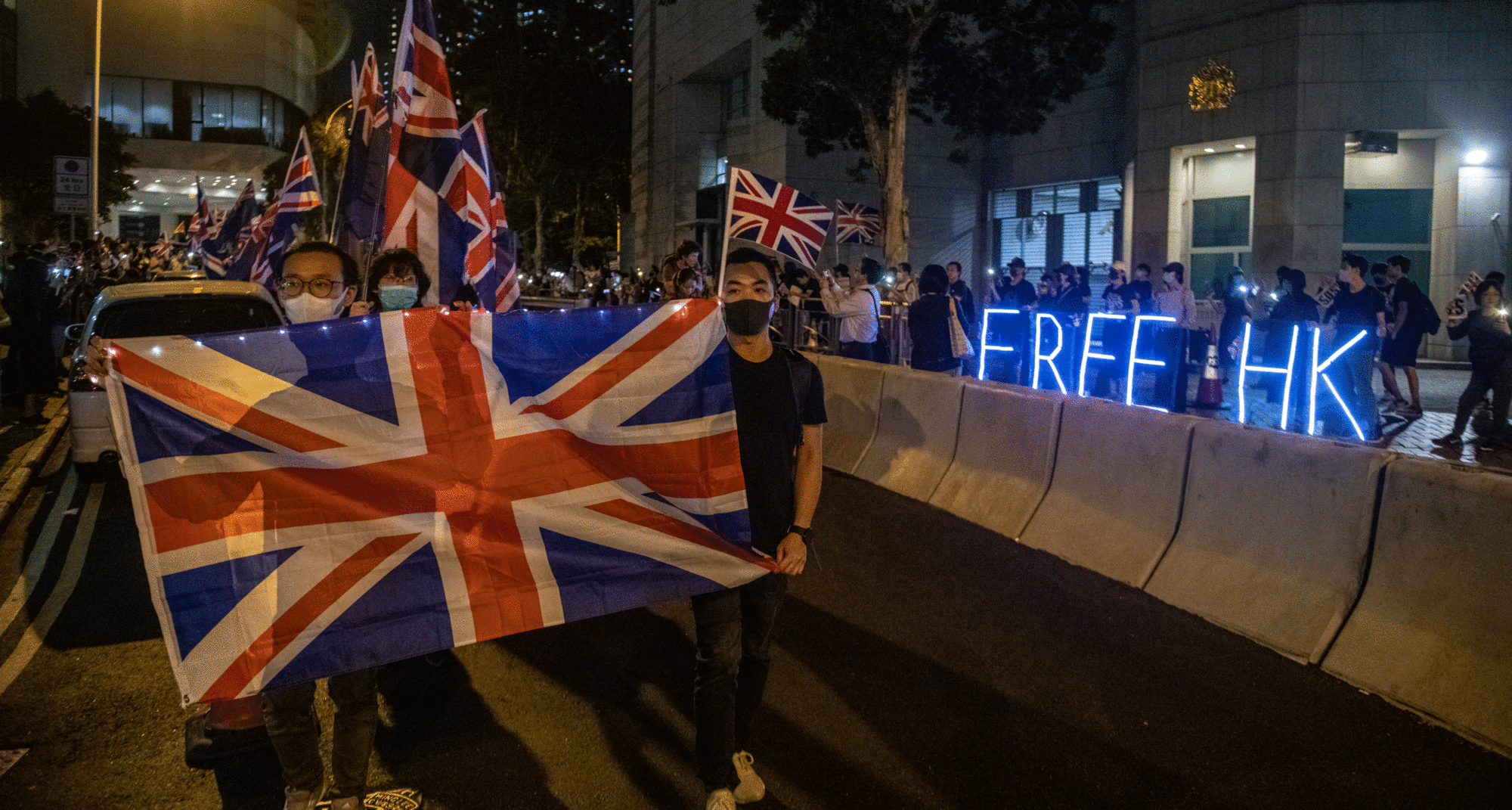Hemingway said, “bankruptcy happens gradually, then all at once”. The imposition of Chinese autocracy on Hong Kong has happened in much the same way.
For years this freedom loving city has been suffering under Chinese rule. Their rights to protest, education, a free press and freedom of assembly have been incrementally broken down. For decades, successive British governments have failed to effectively stand up to Beijing.
Issues with Chinese rule have been apparent shortly after the 1997 handover, and building since pro-democracy demonstrations began in 2014. Since then Chinese control and interference has only grown, with new legislation limiting voters’ choices in Hong Kong elections and changing extradition laws. Those who have taken to the streets to protest against these laws were met by a brutally prepared Hong Kong Police Force. A report by the British All-Party Parliamentary Group on Hong Kong found the HKPF’s actions at the protests to be in breach of “international human rights law and the spirit of humanitarian law”.
Then autocracy came, all at once, with the passage of the National Security Law.
The new legislation was widely criticised around the world. A landmark report by the Conservative Human Rights Commission in 2020, for example found in the case of Hong Kong that the National Security Law represented the “dismantling of Hong Kong’s promised freedoms, human rights, the rule of law and autonomy.” The APPG on Hong Kong in August recommended imposing Magnitsky-style sanctions on key Hong Kong officials. Something which, to this day, has still not materialised.
The Sino-British Joint Declaration, the UN recognised treaty by which Hong Kong was returned to China as a special autonomous region (SAR), has been blatantly breached by the recent draconian political crackdown. Protesters and those associated with the pro-democracy movement have faced police violence and targeted harassment. In June last year, heavily repressive legislation was introduced. Deliberately vague, the National Security Law has been used to intimidate and quash any who disagree with the pro-Beijing government. Key figures and activists have already been prosecuted under the law, including Agnes Chow, Nathan Law and Jimmy Lai.
Disturbingly, the law is written so as to apply to any individual anywhere in the world. For writing this article and for my involvement in the All-Party Parliamentary Group on Hong Kong, I could see a warrant issued for my arrest.
The battle for Hong Kong’s soul has been predominantly fought by the younger generation. Many of whom are not eligible for British National (Overseas) status. Some young activists, like Agnes Chow and Joshua Wong both 24, have already been imprisoned for their challenging of the Chinese regime. One 19-year old, Tony Chung, has even been jailed for throwing the Chinese flag on the floor. Chung was also one of the first to be arrested under the National Security Law last July, and still anxiously awaits his fate on charges of secession.
Any initiatives to support escaping Hongkongers must consider these brave youths who have fought so hard for rights and freedoms which we in the UK take for granted.
Britain has a unique responsibility to stand up to China’s rampant authoritarianism. When the British flag was lowered over Hong Kong harbour in 1997, many of us hoped it would usher in a new and positive relationship between China and the West built on shared values, continued commercial success and a movement towards greater democracy. In the last year, the city which was once a beacon of internationalism, trade, globalisation and freedom has seen those hopes extinguished.
The Chinese Government has bulldozed international law and the human rights of Hongkongers in a display of petulant defiance. Hongkongers were guaranteed rights and freedoms under the Joint Declaration; the British government is bound by law and honour to fight on their behalf and to provide them with the support they need
Under the British National (Overseas) visa scheme, around 27,000 Hongkongers have already fled their home city to seek refuge in the UK – up to 500 could settle in every parliamentary constituency. The increase in revenue for the Exchequer from this group is estimated to lie in the range of between £5.3 and £6.7 billion over the five-year appraisal period.
British Conservatives should be the party leading the fight against China’s thuggish communist regime. But thus far the government’s response has been tepid. Despite repeatedly threatening to do so, the Foreign Secretary Dominic Raab has yet to sanction a single Hong Kong official. On the national stage Britain has not shown the steadfast determination of which we are most certainly capable. Instead, we have wavered.
Countries like the US have already sanctioned officials over human rights abuses in Hong Kong. Britain cannot for any longer afford to be lagging behind on this issue. It is our duty going forward to be much stronger in our dealings with China, and to stand up for the victims of Beijing’s oppression.
Click here to subscribe to our daily briefing – the best pieces from CapX and across the web.
CapX depends on the generosity of its readers. If you value what we do, please consider making a donation.


